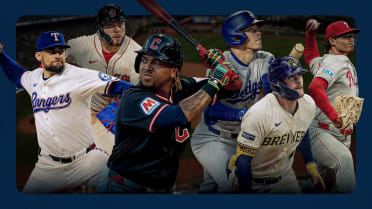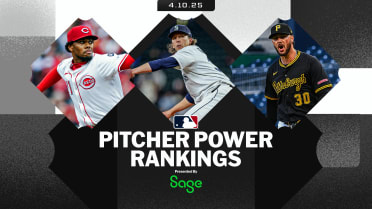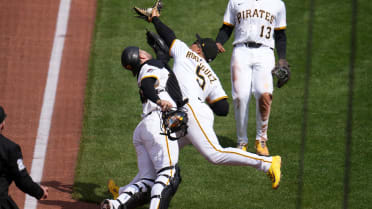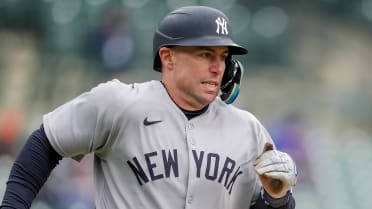While we typically refer to a player’s "rookie season" in the singular, the fact is that players can be rookie-eligible in multiple years. And being rookie-eligible means being in consideration for rookie awards, too. In 2021, two rookies did something with very little historical precedent: received Rookie of the Year votes in multiple seasons.
Rookie of the year votes in ... two years? What? Let us explain.
The situation
According to MLB rules, a player is considered a rookie unless he has exceeded one of three potential thresholds in any previous season or seasons. Those are: 130 at-bats or 50 innings pitched at the MLB level, or 45 total days on an active MLB roster prior to Sept. 1. Already, you can see how a player might end up with eligibility across years -- a September callup, then starting the next year on the Opening Day roster, or any other iteration.
And that’s in a normal season. Now, add in the atypical circumstances surrounding the shortened 2020 season. For the ‘20 season, days of service time on the MLB roster counted even extending past Sept. 1, in contrast to in other seasons. If anything, this eliminated more players from being 2020 and ‘21 rookies, which, of course, makes sense -- given that the Sept. 1 date didn’t carry the same weight in such a short season. The other added stipulation? Players to win Rookie of the Year in 2020 were ineligible to repeat as winners in 2021, even if they otherwise would have qualified by having not exceeded rookie limits.
But despite all of that, of the 19 players to receive Rookie of the Year votes last year -- or, of the 17 to receive votes but not win -- four players remained rookie-eligible for this year. They didn’t exceed at-bats, innings or service-time limits, and they didn’t win the award last year. Those players were: Ryan Mountcastle, who got one vote last year and finished tied for eighth in the AL; Ian Anderson, who received one vote and finished tied for seventh in the NL; Ke'Bryan Hayes, who received five votes and finished sixth; and Sixto Sánchez, who received one vote and was tied for seventh.
Sánchez has not pitched at the MLB level since ‘20, so file this all away on him for next year. Hayes missed time with injury and did not receive any votes, but will no longer be a rookie in '22.
But Mountcastle finished sixth and Anderson fifth, in the AL and NL, respectively, joining an exclusive list.
Has this happened before?
So, two players got Rookie of the Year votes this year, for the second time in their careers. The logical next question is -- is there any precedent for this? Answer: there is, but barely.
The Rookie of the Year Award has existed since 1947, when Jackie Robinson won the first iteration of the honor. In that span, just one player has received votes for the award in multiple years. To be clear, based on the above, being rookie-eligible in multiple years isn’t too much of an oddity. It happens, for sure. But making enough of an impact in two separate rookie stints, to merit votes twice? That’s rare. The only other player to do this, before 2021, was Gregg Jefferies.
Jefferies played in six games as a September callup in 1987 for the Mets, but his vote-getting story begins the next year, in ‘88. He was a late-August callup for the Mets that year and played in 29 games, hitting .321 and slugging .596. He received three votes for NL Rookie of the Year and finished tied for sixth as Reds third baseman Chris Sabo won. At that point, Jefferies had 115 career MLB at-bats, with 109 in ‘88 and six in ‘87. And since the majority of his games had occurred after Sept. 1, he hadn’t reached the service-time limit either.
The following year, rookie eligibility still in tow, he made the Opening Day roster and played in 141 games. He hit .258 and got 18 votes this time, finishing third, as Cubs outfielder Jerome Walton won the award in the NL. Another fun detail: also receiving NL Rookie of the Year votes in 1989? Charlie Hayes -- the father of Ke’Bryan, noted above.
And thus, in 1988-89, Jefferies became the first player to receive Rookie of the Year votes in multiple years. But now, after 2021, he has company on that list.
Sarah Langs is a reporter/editor for MLB.com based in New York. Listen to her on the Ballpark Dimensions podcast with Mandy Bell.




